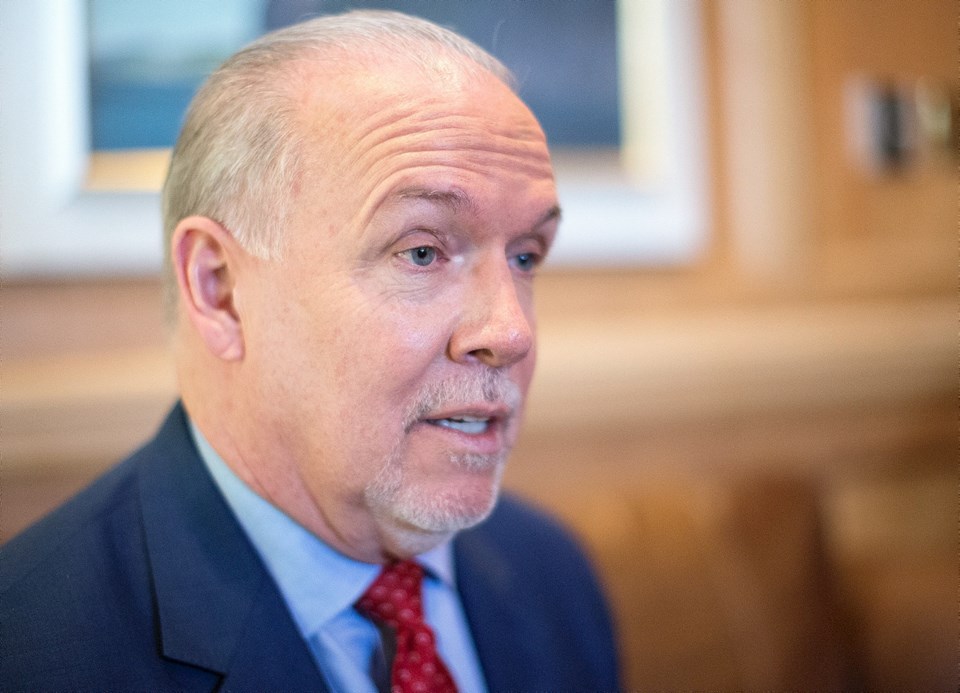Every government evolves its own style of management. Under Mike Harcourt you had well-intentioned muddling. Glen Clark gave us boundless certitude, sometimes untethered from reality.
Gordon Campbell ran the government with an iron fist inside an iron glove. Christy Clark was Campbell light.
But now, after 16 years of waiting, the NDP is finally back, and the closest analogy I can think of is Hamlet: Prince of dithering and self-doubt.
Before the election, everything seemed clear. We knew, or thought we did, exactly where the NDP would take us if it won. Its platform was full of categorical statements.
B.C. Hydro’s Site C dam would be halted. Ditto, if at all possible, the twinning of Kinder Morgan’s diluted-bitumen pipeline from Edmonton to Vancouver.
Poverty-fighting legislation was to be tabled no later than this spring. The minimum wage was to be raised to $15 by 2021. And $10-a-day daycare was promised in the plainest possible language.
All of these promises (and more) have either been abandoned, or delaying action has been invented to defer the evil hour.
Of course, walking back political commitments is hardly an innovation.
And in fairness, Premier John Horgan’s government is a minority administration propped up by three Green Party MLAs whose support cannot always be counted on.
The other day, Green Leader Andrew Weaver gave us an insight into the style of government we might expect from him.
Addressing the issue of backsliding, he offered this surprisingly candid assessment of minority rule: “Campaign promises in this situation are not what’s important. … This is how minority governments work.”
So there you have it. If the referendum on electoral reform passes, and minority governments become a permanent fixture (as they will), political promises will be the first casualty, though by no means the only one.
Set that depressing thought aside for now, though. What’s striking about the government’s U-turns is the method employed.
In almost every case, a task force, a committee of experts or some form of consultation process is set up to offer “advice” on deals we thought were sealed. The government uses this technique to buy time, and if need be, to provide cover for a change in direction.
There’s nothing wrong with consulting. Before political parties formulate their policies, they would be wise to gather as much input as possible.
But once the platform is settled, and an election has been fought and won on it, the time for direction-seeking is over. (An exception can be made for unanticipated events that arise in mid-term.)
In the present context, consulting has become a substitute for governing. More than that, it has become a means of shifting the responsibility for decision-making.
Don’t like the Site C reversal? Blame the B.C. Utilities Commission, which was invited to opine. Unhappy with the stall on poverty-fighting legislation? There are voices we still need to hear from.
There’s something troubling about this.
Democracy is based on the idea that we elect people to make decisions on our behalf.
For all their value in the pre-election period, task forces, town-hall meetings and the like are not elected bodies. Rarely are they representative of the population as a whole.
Once the election is over, if they become the basis for direction-setting, political accountability is compromised.
Being elected to govern embodies a form of contract between the voters and their representatives. It is not a permission slip, despite Weaver’s view of things, to enter into protracted consultations once you are in office.
The dilly-dallying we’re seeing is unsettling. These matters should have been hashed out long ago.
Last May, British Columbians signed a contract with the NDP. We are entitled to see it honoured.



